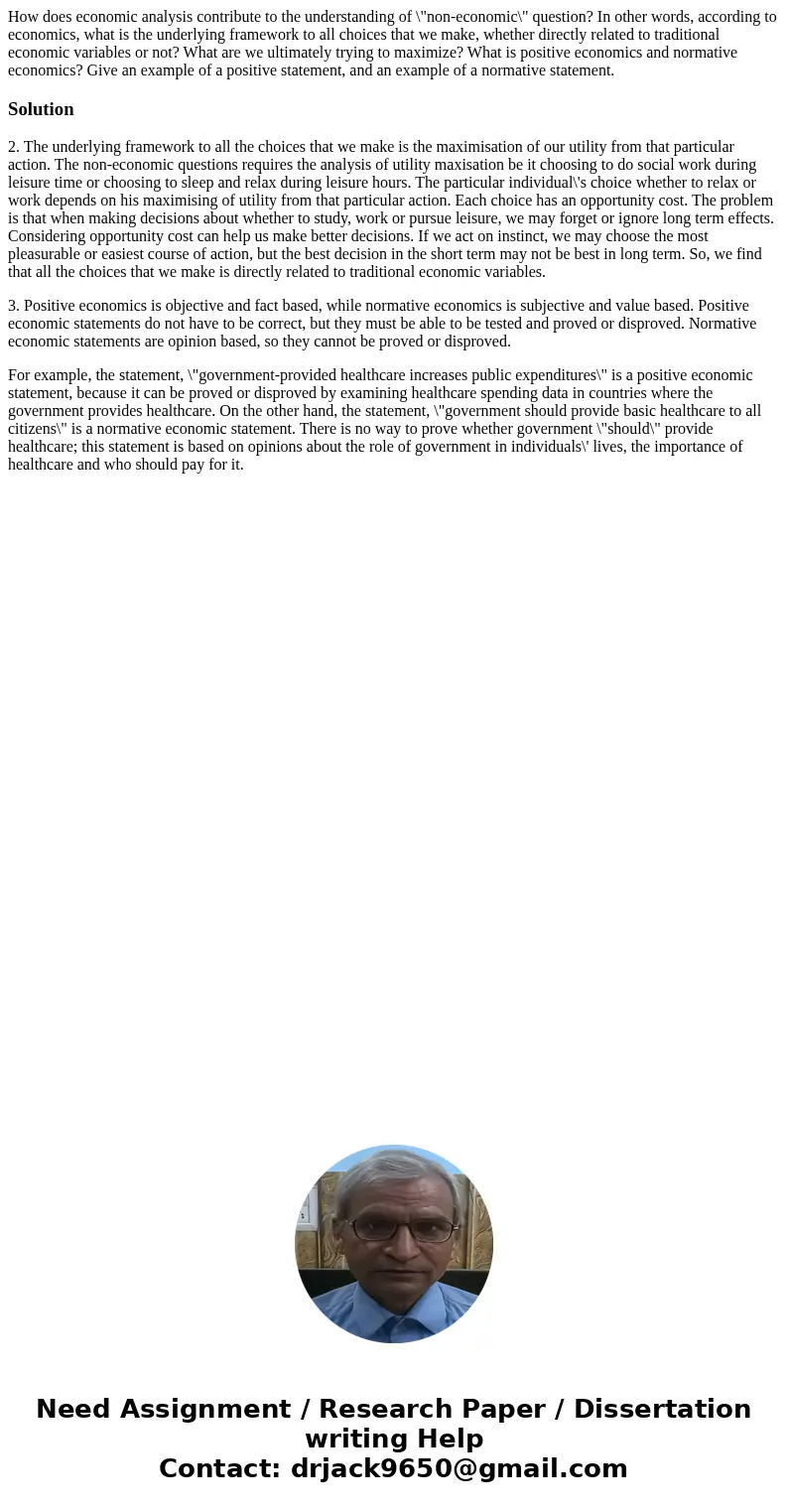How does economic analysis contribute to the understanding o
Solution
2. The underlying framework to all the choices that we make is the maximisation of our utility from that particular action. The non-economic questions requires the analysis of utility maxisation be it choosing to do social work during leisure time or choosing to sleep and relax during leisure hours. The particular individual\'s choice whether to relax or work depends on his maximising of utility from that particular action. Each choice has an opportunity cost. The problem is that when making decisions about whether to study, work or pursue leisure, we may forget or ignore long term effects. Considering opportunity cost can help us make better decisions. If we act on instinct, we may choose the most pleasurable or easiest course of action, but the best decision in the short term may not be best in long term. So, we find that all the choices that we make is directly related to traditional economic variables.
3. Positive economics is objective and fact based, while normative economics is subjective and value based. Positive economic statements do not have to be correct, but they must be able to be tested and proved or disproved. Normative economic statements are opinion based, so they cannot be proved or disproved.
For example, the statement, \"government-provided healthcare increases public expenditures\" is a positive economic statement, because it can be proved or disproved by examining healthcare spending data in countries where the government provides healthcare. On the other hand, the statement, \"government should provide basic healthcare to all citizens\" is a normative economic statement. There is no way to prove whether government \"should\" provide healthcare; this statement is based on opinions about the role of government in individuals\' lives, the importance of healthcare and who should pay for it.

 Homework Sourse
Homework Sourse